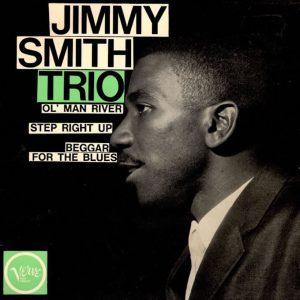Ever since her audacious debut, Exile In Guyville, landed in 1993, singer-songwriter Liz Phair has been a cipher for a certain kind of aesthetic. She’s been called “the female face of indie rock”, a “slacker poet of the first degree” and a “brainy bad girl”, but she forever remains America’s sardonic sweetheart – as Guyville’s follow-up, Whip-Smart, continued to prove in 1994.
Fusing lo-fi production with a singer-songwriter sensibility, Phair helped shaped what would become “indie rock” and defied expectations of what a female rock star could be. While her sexually provocative lyrics are what first enthralled the indie press, it was her fearless singing, her effortless hooks, and the specificity of her lyrics that connected with fans.
Do you love 90s music? Buy the best 90s music on vinyl here or stream it on this playlist.
With Exile, Phair created what’s considered a track-by-track response to The Rolling Stones’ Exile On Main St by reverse-engineering sexual objectification for the female gaze, all while keeping her tongue firmly in her cheek. Faced with the artist’s dilemma on how to follow what was considered an instant classic, Phair delivered her sophomore effort, Whip-Smart, and, shortly after, graced the cover of Rolling Stone in a story titled ‘Liz Phair: A Rock & Roll Star Is Born’.
Dissecting the themes Phair knows best, Whip-Smart is a loose concept album about the inevitable stages of a relationship that she described as: “meeting the guy, falling for him, getting him and not getting him, going through the disillusionment period, saying “F__k it,’ and leaving, coming back to it.”
Whip-Smart builds upon the foundation set forth by her debut, capturing the same intimate, DIY style but with slicker arrangements, multi-layered vocals, and experimental sound effects. Phair was never a belter, but that’s a part of her appeal. Her lower register has become her signature, but her delivery always seemed to signify shored-up emotion rather than cool detachment.
Embracing power pop
While many of the tracks on the final album (specifically “Chopsticks,” “Shane,” “Go West,” ‘Whip-Smart’ and parts of ‘Jealousy’) were written back in 1991 under her previous Girly-Sound name, Whip-Smart is far more 90s power-pop than her first offering. The album’s lead single, ‘Supernova’, dominated alt-rock radio and MTV that year, and greatly introduced the once indie darling to more mainstream audiences, even earning Phair her first Grammy nomination. Despite being an anthemic pop-rock love song, “Supernova” still contained snarky lyrics like, “And your lips are sweet and slippery, like a cherub’s bare wet, ass” and more explicit lines that speak to her romantic partner’s expertise.
Like Guyville, Whip-Smart was also self-produced, with the help of co-producer and drummer-bassist Brad Wood. From the music videos to the propagandist cover art, Phair remained firmly in the director’s seat for all aspects of the album. Whether she’s reflecting on a one-night stand to the tune of the traditional waltz “Chopsticks” or invoking the official slogan of America’s westward expansion in ‘Go West’, to get over an ex, her unflinching honesty and confessional songwriting are why an entire generation so strongly identified with her, and why she forever looms large as the indie-rock queen of the 90s.
It may have gotten lost in the Phair cannon, but “Go West” is one of the best on-the-road songs of the decade. “Nashville” is another standout track, with its hazy shoegaze intro, and features one of the best refrains on the album with “I won’t decorate my love” (the other being, “You gotta have fear in your heart”, on “Shane”).
‘I don’t want to be anyone’s revolutionary’
Despite attempts to lay the mantle of third-wave feminism on Phair, she told New York magazine in 1996, “I don’t want to be anyone’s revolutionary, I don’t want to lead a movement.” And yet most would categorize her music with the capital “F” label. She speaks to feeling invisible on “X-Ray Man” and raising a self-aware son on the title track, a new wave cover of Malcolm McLaren’s “Double Dutch,” without the problematic lyrics.
Much of the latter half of the album is dominated by downtempo bedroom rock, with the exception of the full-on rocker, “Jealousy.” With its accelerating rhythm, the song bubbles over like the feeling itself as Phair incredulously wonders, “I can’t believe you had a life before me.” By the time you reach the cathartic ending of the relationship at the album’s end, she delivers the ultimate kiss-off on “May Queen,” warning all the young people of the world to beware of “rock’n’roll Ken dolls”.
Starting the album with a primary-school piano exercise and ending it with a vocal one brings everything back full circle, with the realization that we’re all still adolescents when it comes to relationships, pretending to be adults about it.
No matter where you stand as a Phair fan, Whip-Smart is considered part of her great trifecta of albums: landing after her dizzying debut and before her hooked-fueled return from hiatus, whitechocolatespaceegg, in 1998.
Whip-Smart would go on to debut at No.27 on the Billboard 200, later achieving Gold status and inspiring countless singers and female-fronted bands for decades to come.




